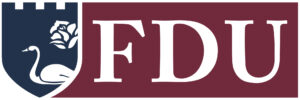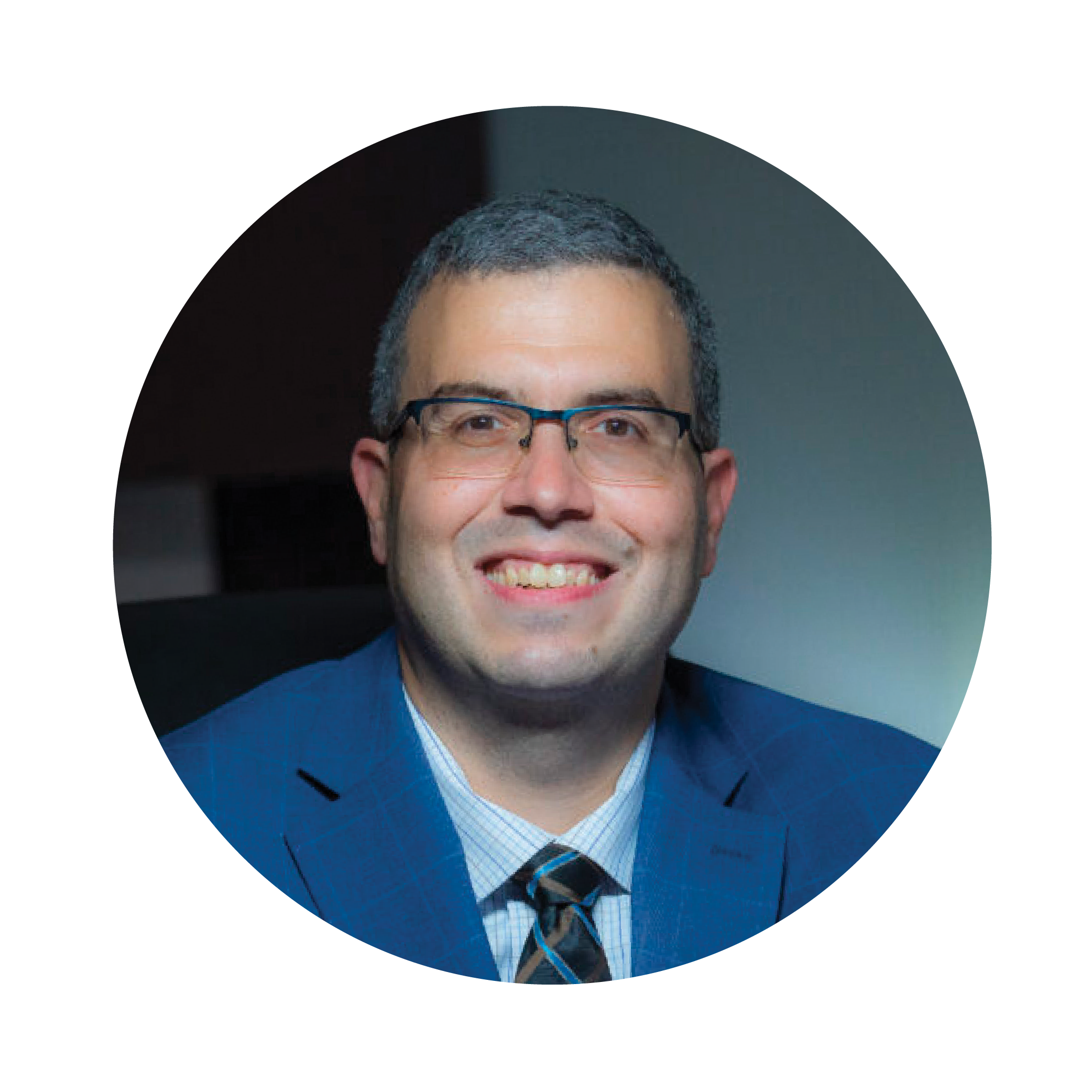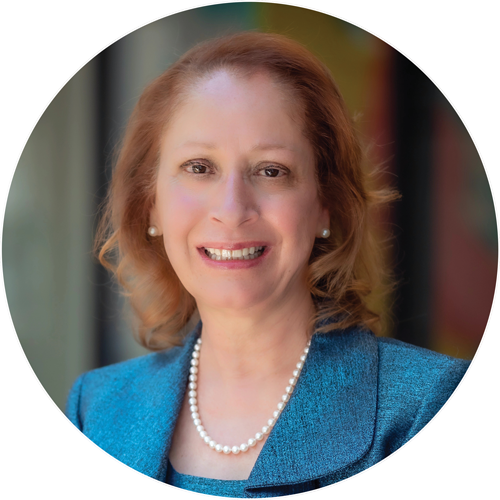In April 2023, Michael J. Avaltroni’s journey came full circle when he became Fairleigh Dickinson University’s (FDU) president after graduating from the university’s Florham Campus over twenty years ago. Following his B.S. in chemistry from FDU, Avaltroni went on to earn an M.A. in chemistry and a Ph.D. in chemistry in 2003, both from Princeton University. He returned to his alma mater and now has become the first FDU undergraduate to serve as the institution’s president. “As a student, I was involved in undergraduate research and worked closely with many faculty members,” shares Avaltroni. “I stayed in touch with my faculty mentors and when I was finishing my graduate work in 2003, one of my undergraduate research advisors at FDU reached out and said he would be retiring and encouraged me to interview for his position. I got the job and was excited to join FDU as a faculty member where I had been a student a few years prior. This was the beginning of an interesting perspective of seeing education from the other side and gaining first-hand insight into the challenges and rewards of teaching and mentorship.”
Dr. Avaltroni quickly transitioned from that role into department chair of the chemistry department, acting as a liaison between the administration and the faculty. “In 2008, I was approached by our university president about creating a School of Pharmacy and Health Sciences,” says Avaltroni. “After a four-year journey of learning and exploring, I helped develop a new pharmacy program at the university, became dean, and pivoted into the health sciences.” In this role, Avaltroni grew a team of esteemed faculty and staff, created partnerships with the region’s health care and pharmacy community, and helped the program gain full accreditation status. “While I unexpectedly ended up in a full-time administrative position, I found that health science education and building new programs to be a real passion and a rewarding challenge.”
While completing her postdoctoral degree and taking on the role of assistant professor at Penn State York, Muscanell conducted research and helped build their new psychology undergraduate program. After five years, she returned to her hometown of Orlando, Florida and began working as a Research Analyst at JHT Incorporated. While working for JHT, she was contracted to work for the Department of Defense to help evaluate their educational training programs at the Defense Equal Opportunity Management Institute (DEOMI). “DEOMI is in charge of training all active-duty members across the military branches in topics such as human relations and equal opportunity,” explains Muscanell. “I helped assess the effectiveness of their training programs, and it was an experience I truly enjoyed. Later in 2022, I wanted to return to my roots in higher education and joined EDUCAUSE as a researcher, heading up all aspects of research projects from design and data collection to analysis and publication.”
Exploring Emerging Trends
In using the pharmacy program as a blueprint, Avaltroni has been instrumental in helping build other new programs, including physician assistant studies, occupational therapy, social work, and public health. In January 2022, Avaltroni was appointed University Provost and Senior Vice President for Academic Affairs, before taking on his new role last year as University President. “During my time as a dean in our pharmacy school, I saw the value of interprofessional education, which is a huge hallmark of health science education and effective health care practice,” shares Avaltroni. “You learn how to collaborate with other professionals and follow a patient-centered model in the case of health care. When we think about the scope of university study, collaboration, and innovation, we must determine how to leverage our partnerships to embrace new opportunities, get past our limitations, and develop innovative models, approaches, research, and platforms that advance education.”
“During my time as a dean in our pharmacy school, I saw the value of interprofessional education, which is a huge hallmark of health science education and effective health care practice. You learn how to collaborate with other professionals and follow a patient-centered model in the case of health care. When we think about the scope of university study, collaboration, and innovation, we must determine how to leverage our partnerships to embrace new opportunities, get past our limitations, and develop innovative models, approaches, research, and platforms that advance education.”
— Michael J. Avaltroni, Ph.D.
President, Fairleigh Dickinson University
“By collaborating across sectors, we can pool resources, expertise, and opportunities to create more innovative, efficient, and accessible educational experiences for students,” continues Avaltroni. “This approach not only strengthens our community but also helps us stay agile in an ever-evolving landscape, ensuring that we continue to meet the needs of students while preparing them for the future workforce. Institutions have the ongoing challenge of keeping pace with emerging technologies, like artificial intelligence (AI), and we must determine how to adjust our curriculum and programs to stay relevant and effective. In an industry that has often been slow to change, higher education is being faced with a required mindset shift. We need to be thinking about building programs not for today, but for 2030 and beyond.”

Expanding External Partnerships
Since the pandemic, many institutions of higher education have had to reevaluate their business models and determine new ways to provide students with high-quality services and support. “Several colleges and universities are having to rethink the mission of their institution and recognize they can’t be everything to everyone because resources are limited,” says Avaltroni. “FDU is rethinking our business model while embracing what we are good at and finding alignment with where we think higher education is headed. I also see a great opportunity to expand our partnerships with other institutions, as well as nonprofits, businesses, and government entities. We want to make the sum greater than the parts and help all of us to work smarter, not harder when trying to accomplish our goals.” Continues Avaltroni, “Partnerships such as Edge are an example of what I see as the path forward for higher education— an opportunity for universities and stakeholders to come together to share ideas, resources and gain economies of scale at a point in time where scale and scope are becoming paramount to delivering on our educational mission. My hope is that organizations like Edge can be a leader in showing that the sum of a group’s contributions, ideas, knowledge, and resources can truly be greater than its parts.”
In his new role, Avaltroni continues to build a college ecosystem that leans more heavily on community colleges and high schools and showcases their importance in the educational journey. “If we can provide students with early-stage opportunities to explore college and see two-year institutions as a positive introduction into higher education, we will likely attract more students, help them hone their knowledge and skills, and see them through to graduation. Part of FDU’s strategy is also focusing on community-based education for learners who seek online programs and prefer a flexible hybrid-learning model. We’ve anchored ourselves at community sites off campus to allow students to come together once a week onsite to engage in meaningful interactions and faculty-curated conversations. Within our first year of launching this cohort approach, we’ve seen an increase of over a hundred students in many of these programs.”
“By incorporating empathy and human-centered approaches into our curriculum, we are preparing students not only to navigate technological advancements, but to thrive in environments where emotional intelligence, collaboration, and ethical decision-making are critical. We must find the coalescence between man and machine and equip students with the ability to leverage AI and other emerging technologies in ways that complement, rather than replace, the human connection and creativity that are essential in any field.”
— Michael J. Avaltroni, Ph.D.
President, Fairleigh Dickinson University


FDU is also partnering with community colleges to help more students pursue higher education and gain valuable hands-on training that is more in line with their needs and budget. “We’re joining forces with businesses and organizations that are building learn-while-you-earn pathways that create entry points into an industry or help someone expand their skill set,” explains Avaltroni. “In looking at the health care industry that is experiencing a talent shortage crisis, for example, we have community colleges that offer a two-year registered nurse (RN) program where students are paired with health care industry partners. The employer reimburses the student for the cost of upskilling to a Bachelor of Science in Nursing (BSN) or Master of Science (MS) in Nursing, and the employer will gain a highly-trained, loyal, and well-rounded employee. This provides a win-win situation for everyone. We’re able to leverage these opportunities, upscale in volume, and help more students pursue an education and rewarding career.”
To learn more about this fast-track concept, Avaltroni visited the University of Central Florida (UCF), which has built a strong system that supports a clean transition between two-year and four-year institutions. “UCF has partnered with a low-tech high school that has an allied health focus,” explains Avaltroni. “It partners with students during their high school career and helps them earn credentials based on their interests, like a nursing assistant, EMT, or pharmacy technician. They are then embedded into the workforce while going to a two-year school to earn their first-level degree and then onward to UCF to finish their education. This model provides an opportunity for students, including those from first-generation and underrepresented groups, to earn an income while pursuing a degree and make a career out of their four-year journey.”
“We’re very proud to be a Hispanic-Serving Institution (HSI) and the majority of our students are from underrepresented minority groups and are first-generation college students. The population of students has changed over time, but we continue to serve students who are seeking us for access and opportunity—this is our founding legacy. In 2022, we were selected as one of the models of excellence in education for our two-year programs created through our FDU Hispanic Center. These programs are for students who are looking for opportunities to complete their studies alongside learning English as a Second Language (ESL) as part of their degree.”
— Michael J. Avaltroni, Ph.D.
President, Fairleigh Dickinson University
Eliminating Learning Barriers
To support FDU’s efforts to foster a diverse, equitable, and inclusive campus, the University has a Diversity, Equity, Inclusion, and Accessibility (DEIA) Advisory Council, which focuses on building a campus community that values diversity, promotes accessibility, and upholds a culture of mutual respect and understanding among students, faculty, staff, administration, and alumni. “We’re very proud to be a Hispanic-Serving Institution (HSI) and the majority of our students are from underrepresented minority groups and are first-generation college students,” says Avaltroni. “The population of students has changed over time, but we continue to serve students who are seeking us for access and opportunity—this is our founding legacy. In 2022, we were selected as one of the models of excellence in education for our two-year programs created through our FDU Hispanic Center. These programs are for students who are looking for opportunities to complete their studies alongside learning English as a Second Language (ESL) as part of their degree.”
The FDU Hispanic Center recently celebrated its 20th anniversary and features several programs that allow students to learn and refine their English while earning credits toward their academic credentials. “We have programs that create bi-lingual programming pipelines where the first year is all Spanish speaking, followed by a gradual transition to English. Bi-lingual proficiency is a positive career advantage and helps students become more competitive in the global job market. These programs not only support language development, but also foster cultural awareness, preparing students to thrive in diverse environments both professionally and personally.”
To further demonstrate this commitment, FDU joined the Education Advisory Board (EAB)’s Moon Shot for Equity. “This national initiative is committed to eliminating gaps in college completion and retention for underrepresented minority groups by 2030,” says Avaltroni. “Student journeys are generally the same, but oftentimes, the barriers are a tripping point for one and a catastrophic fall for another. We need to identify actions that can strategically close these barriers, and Moon Shot has committed us to building a robust transfer portal from the community college. We are exploring how to eliminate some of the easier obstructions to continuation and persistence, like debt hold reform.”
“Shifting our mindset has helped us rethink many of our processes across the University and look through a lens of inclusion,” continues Avaltroni. “We recognize that the processes that help our most vulnerable students will also benefit those students who are navigating the college experience with less challenges. Our Regional Center for Learning Disabilities also provides students with the resources they need to succeed on their academic journeys. Our COMPASS social support program is for students with autism spectrum disorder and provides guidance on individualized education plans, how to get additional help, and where to go for resources and support. Oftentimes their challenges are not in the learning environment, but navigating college life in dorms, the dining hall, and social situations. We want to help them succeed and develop their academic and social strengths.”
“Edge is pleased to partner with Fairleigh Dickinson University to advance the research and education mission of their institution through Edge’s advanced high performance network capability and many collaboration opportunities.”
— Forough Ghahramani, Ed.D.
Assistant Vice President for Research, Innovation, and Sponsored Programs, Edge

Preserving the Human Connection
To help prepare students with the skills and knowledge they need for the future workforce, Avaltroni says FDU is leaning heavily on integrating future-proof training that combines both technical and interpersonal skills into students’ toolkits. “A few years ago, we created a Center for Empathy Research and Training that teaches the skills necessary to interact from the perspective of empathy—which has been exceptionally important in our health care programs. We have also rolled out campus-wide empathy training that builds skills and creates an overall supportive environment. In looking at rapidly-evolving technology like AI, FDU is exploring how to preserve the human connection and help students work with these tools, instead of being fearful that an increasingly technological landscape will make them obsolete.”

“By incorporating empathy and human-centered approaches into our curriculum, we are preparing students not only to navigate technological advancements, but to thrive in environments where emotional intelligence, collaboration, and ethical decision-making are critical,” continues Avaltroni “We must find the coalescence between man and machine and equip students with the ability to leverage AI and other emerging technologies in ways that complement, rather than replace, the human connection and creativity that are essential in any field. For example, instead of looking at AI replacing our need for radiologists, how can we equip these professionals to use these tools to be better clinical decision-makers and have more quality time to spend with patients? If you have AI dictation in the exam room, instead of being focused on taking notes and staring at a computer screen, doctors and nurses can talk to patients eye to eye and pick up on cues that improve their clinical judgment.”
Celebrating the Commitment to Student Success
Starting back when Avaltroni was a dean at FDU’s School of Pharmacy, he wanted to promote a culture that invests in their employees, offers training and engagement opportunities, and celebrates employee accomplishments. While in his role as University Provost in 2022, he created the Transformational Excellence Awards that recognize exceptional faculty and staff contributions and their commitment to enhancing the student experience and improving campus life and community wellness. “I am proud to be part of a community of individuals who go above and beyond for our students and for each other,” says Avaltroni. “We celebrate people who exemplify excellence in student retention, student success, or student belonging.”
“If we can provide students with early-stage opportunities to explore college and see two-year institutions as a positive introduction into higher education, we will likely attract more students, help them hone their knowledge and skills, and see them through to graduation. Part of FDU’s strategy is also focusing on community-based education for learners who seek online programs and prefer a flexible hybrid-learning model. We’ve anchored ourselves at community sites off campus to allow students to come together once a week onsite to engage in meaningful interactions and faculty-curated conversations. Within our first year of launching this cohort approach, we’ve seen an increase of over a hundred students in many of these programs.”
— Michael J. Avaltroni, Ph.D.
President, Fairleigh Dickinson University
“FDU faculty or staff members are nominated for creating a transformational experience for our students and our University. We hear many inspirational stories from students that a certain teacher is the reason they walked the stage at graduation, why they re-enrolled, or how they received a scholarship that helped them achieve their dreams. These awards are just one way to demonstrate the value of what our faculty and staff are doing and the impact they’re having on the lives of the students around them.”
In looking toward the future, Avaltroni is excited for the road ahead and the strategic plan he has launched to continue advancing FDU’s academic mission and fostering innovation and inclusion in teaching and learning. “Our strategic action plan, FDU Will Soar, outlines initiatives aimed at boosting enrollment, retention, and fundraising, reducing inefficiencies, and differentiating our academic programs. We want to continue to meet our students’ needs and expectations, build external partnerships, and tell our story as a valuable partner and resources in the higher education community. I wish to further expand this network and partner with independent colleges, two-year institutions, corporate partners, health care organizations, and nonprofits. We want the value of a higher education degree from FDU to link to a future of upward mobility and open doorways to intergenerational transformation. We aim to empower our students and see their degree as more than a piece of paper to hang on the wall, but a ticket to a future and a successful career that allows them to contribute to the betterment of their families and their communities.”


